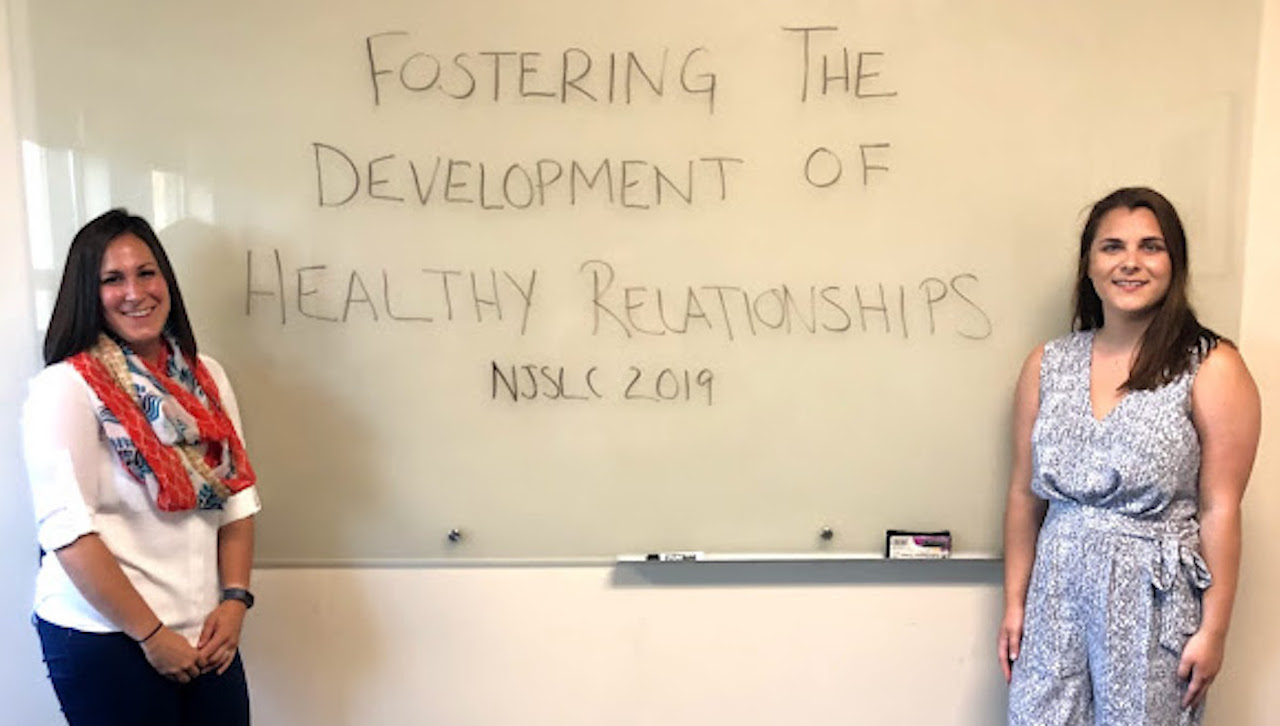Student Presents at National Leadership Conference

Aubrianna Rice, a senior physiology major at Scranton, and Maria R. Marinucci, director of the Cross Cultural Centers at the University, co-presented about healthy relationship programming at Scranton at the National Jesuit Student Leadership Conference. The conference, attended by more than 200 students attending Jesuit colleges from across the country, took place at the University of Detroit Mercy during the summer.
The presentation focused primarily on Scranton’s programming about healthy relationships for new students, which was developed and continues to be facilitated by the University’s Jane Kopas Women’s Center and Counselor Training Center. The program, called PACT – Promoting Awareness of the College Transition – involves student-led interactive sessions with small groups of new students. The sessions, which also include a University staff or faculty member, occur during the third and fourth weeks of the fall and spring semesters. All incoming students participate, including transfer students.
Rice, who participated in the conference last year, proposed and developed the presentation which she then co-presented with Marinucci at this year’s conference. Rice, Apalachin, New York, also has a concentration in women’s and gender studies at Scranton. She is a PACT presenter at the University.
Scranton’s PACT programming covers discussions about transitioning to college, developing healthy relationships and the importance of communication in relationships, as well as discussions about consent, sexual harassment and sexual misconduct, and resources.
Marinucci said the sessions explore the aspects of a healthy relationship, such as respect, honesty and trust. They discuss consent and the role drugs or alcohol can play in sexual misconduct. The session also includes a discussion of indicators of potential unhealthy or even violent relationships, such as a lack of respect, displaying hypersensitivity, controlling behavior or sudden mood swings, verbal abuse and other warning signs.
The sessions also provide information about University expectations for a safe community and resources available for support and for reporting experiences of sexual harassment or misconduct.
According to Marinucci, 98.5 percent of incoming students completed the PACT program for the 2018-2019 academic year. She credits the participation success to the strong support the program receives from partners throughput campus, including Athletics and Residence Life. Other indicators of the effectiveness of the PACT program include self-assessment surveys completed by 96.9 percent of participants which indicate that – after participating in the PACT sessions – 92.1 percent students say they can identify, and differentiate between, aspects of healthy and unhealthy relationships. The surveys also show that 92.9 percent of participants have a better understanding of what is meant by “consent,” and 93.1 percent understand the University’s expectations of student behavior as it relates to sexual harassment and sexual misconduct.
Marinucci said this is an important conversation to have with students as they transition to college and begin to develop new relationships.
Rice said her intention in presenting Scranton’s PACT programming at the National Jesuit Student Leadership Conference was “to share our program with other schools so they could be inspired to create programming like it on their campuses.”
Fourteen Scranton students, including Rice, participated in this year’s conference.






